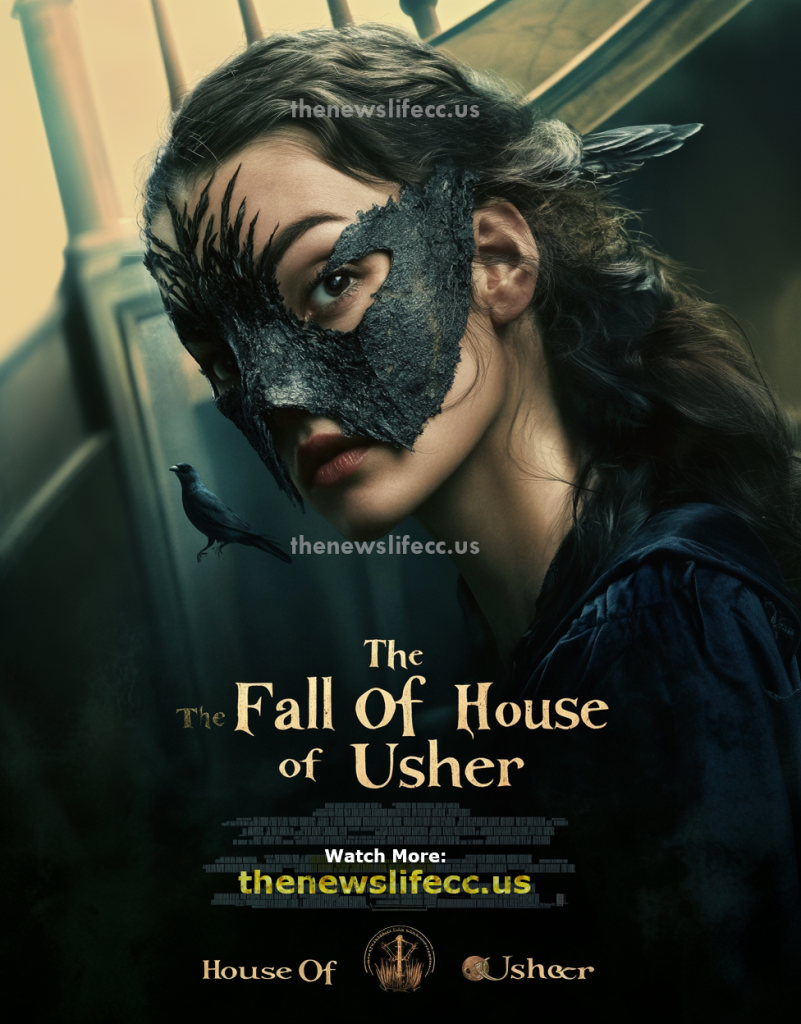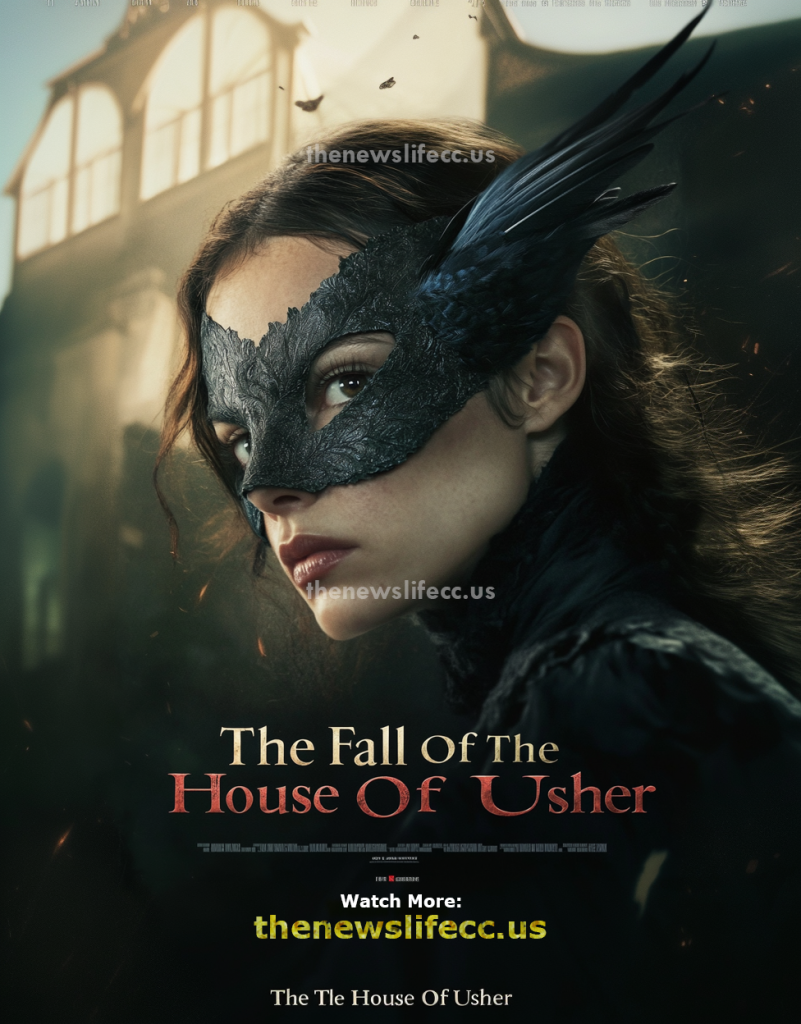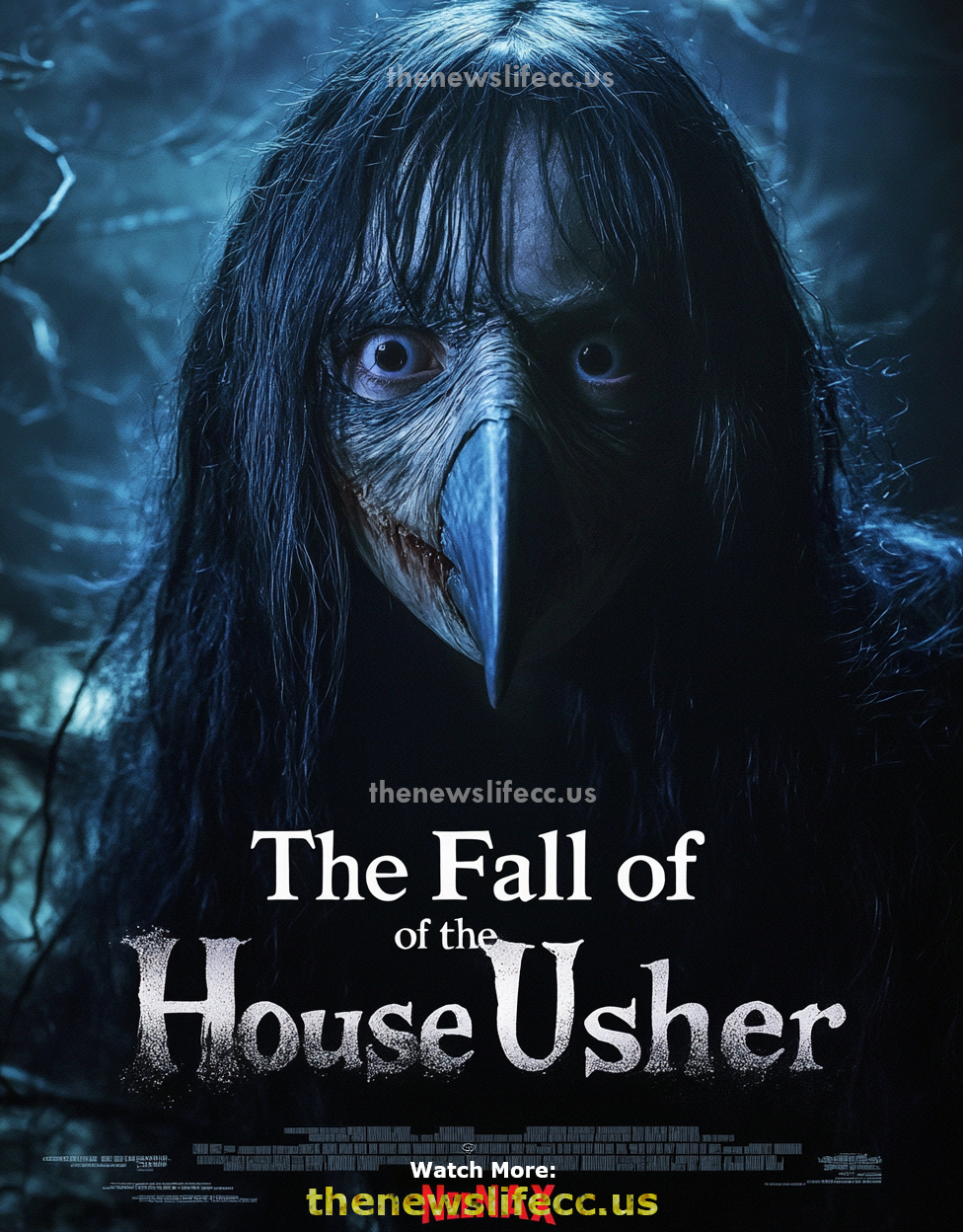“The Fall of the House of Usher” is an upcoming Netflix adaptation inspired by Edgar Allan Poe’s classic tales of horror and psychological suspense. This chilling miniseries, produced by Mike Flanagan, known for his masterful storytelling in horror, intertwines several of Poe’s works to create a gripping narrative centered around the Usher family, steeped in dark secrets and tragic events.
The story follows Roderick Usher, a wealthy and enigmatic businessman, and his sister Madeline, who are the last surviving members of the Usher lineage. The siblings inhabit the ancestral mansion, a decaying structure that symbolizes their family’s decline. Roderick, portrayed as a charismatic yet deeply troubled figure, runs a powerful pharmaceutical company that has prospered over the years, but at a terrible cost. As the series unfolds, viewers learn that the Usher family’s fortune is built on dark and unethical practices, with a history of tragedy and betrayal haunting their lineage.

The plot thickens when mysterious deaths start to occur around Roderick and Madeline. These events coincide with the arrival of Poe’s themes of madness and decay, exploring the psychological unraveling of the characters as they confront their past sins. Roderick is tormented by visions and hauntings linked to the dark legacy of his family, leading him to question his sanity.
A key element of the series is the investigation led by a determined detective, who seeks to unravel the mysteries surrounding the Usher family. As the detective delves deeper, they uncover a series of twisted family secrets that reveal the extent of Roderick and Madeline’s moral corruption. The investigation not only exposes the Usher family’s dark history but also raises questions about the consequences of unchecked ambition and greed.

Flanagan’s adaptation masterfully blends psychological horror with rich character development, allowing audiences to witness the internal struggles of the Usher siblings as they confront their demons. The series promises to be visually stunning, with atmospheric cinematography that enhances the eerie and foreboding tone of the story.
As tensions rise and the body count increases, the series builds toward a chilling climax that draws from Poe’s exploration of themes such as guilt, madness, and the supernatural. In the end, “The Fall of the House of Usher” offers a haunting tale of familial legacy, exploring how the weight of the past can lead to one’s downfall, encapsulating the essence of Poe’s timeless works while providing a fresh, modern narrative.
This adaptation is set to captivate both fans of Poe’s literature and new audiences alike, promising a thrilling and unnerving experience that lingers long after the final credits roll.



